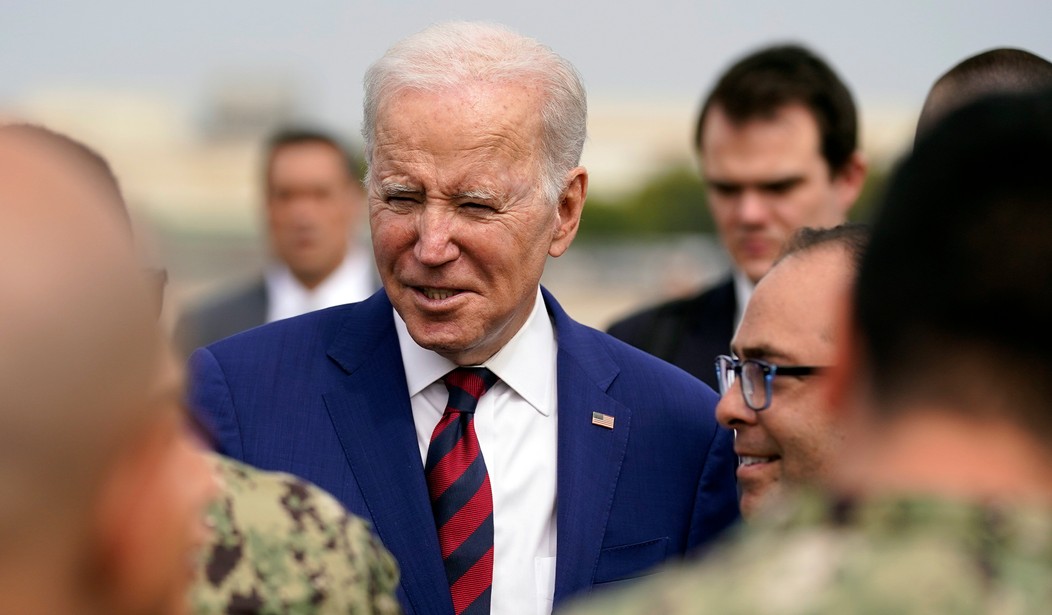When the nation sends them into combat, the military expects to take incoming fire. Of late, however, they’ve been taking fire from an unexpected direction – from political leaders and media pundits. The political dysfunction in Washington has made our men and women in uniform inadvertent combatants in an ongoing culture war and the public’s long standing high confidence in the military could end up being an unfortunate casualty.
This politicization of the military comes at a bad moment, with the all-volunteer force facing an exceptionally difficult labor market that has caused the services to fall drastically short of recruitment goals at the same time that a geopolitical environment dominated by the return of great power competition underscores the need for a strong defense. Declining public confidence in the military would make recruiting that much harder and further complicates the challenge of building public support for America’s role in the world.
The issue was put in sharp relief during the recent Senate Armed Services Committee (SASC) confirmation hearings for General CQ Brown, President Biden’s nominee to be the 21st Chairman of the Joint Chiefs of Staff. Both Chairman Reed and Ranking Member Wicker referenced a rise in the politicization of the military and a decline in public confidence in the military in their opening remarks.
The Senators likely held different interpretations of who (or what) was politicizing the military. Senator Reed probably had in mind the blanket hold that fellow SASC member Senator Tuberville has placed on all general and flag officer nominations in protest of the Department of Defense policy to cover the transportation costs female service members might incur as a result of the Dobbs decision overturning abortion policy.
Senator Wicker, by contrast, claimed that it was the Democrats who were politicizing the military with their emphasis on Diversity, Equity, and Inclusion (DEI) policies – or perhaps the military politicizing themselves by embracing those policies. Senator Wicker also added an important additional consideration: perhaps the public has lost confidence in the military’s ability to perform in wartime because the military underperformed in the post-9/11 environment without apparently holding anyone accountable for poor outcomes.
Recommended
Both Senators are describing different parts of the same proverbial elephant and both are right to draw attention to the issue of public confidence in the military, which remains high relative to other governmental institutions but has dropped noticeably in recent years. As I outline in a just-released book, Thanks For Your Service: The Causes and Consequences of Public Confidence in the US Military (Oxford University Press), public confidence is driven by the confluence of six factors:
Patriotism: rally around the flag support for the military during wartime.
Performance: the perception that the military is good at its main mission.
Professional ethics: the perception that the military behaves ethically.
Party: predictable patterns where Republicans consistently express higher confidence than Democrats.
Personal contact: one’s connection to the military, whether as a veteran or as a family member of a veteran.
Public Pressure: saying you have confidence in the military because you believe that others have confidence in the military and so this is the politically correct view to hold.
Many of these factors were likely to trend in a negative direction regardless. With the war on terror winding down, it is doubtful that a rally around the flag dynamic would stay strong. Likewise, the passing of the generations that experienced mass mobilization and the draft means that the pool of people with personal connections to the military inexorably is shrinking. Increasingly, it is a case of the public having high regard for – but at a high remove from – the military. Confidence in the military is high but hollow.
Yet it is also the case that the politicization of the military – by dragging the military into partisan politics – can adversely affect many of these dynamics, at least indirectly. For instance, the most partisan Republicans are the ones making claims about a supposed “woke military,” and those claims are bound to shape the views of other Republicans, which may be why some recent polling suggests that the confidence of Republican respondents has dropped more markedly than that of Democratic respondents.
It would be better if both political parties decided to treat the military as noncombatants in the ongoing culture wars. Let’s focus those partisan fights on civilian political leaders, the ones who actually make policy, not on the military, the ones who are obliged to implement the policy regardless of their own personal viewpoints. Otherwise, the politicization of the military will further poison public attitudes toward the military and further complicate civil-military relations.
In his opening statement, General Brown underscored the importance of this issue, stating: “Above all, I will dedicate myself to this proposition: that the American people should understand and know their military and its servicemembers solely as the unwavering defenders of the Constitution and our nation.” That pledge, and more like it, could help take the military out of the crosshairs of the culture war and help shore up public confidence in this crucial institution.
Harvard graduate Peter D. Feaver is Professor of Political Science and Public Policy at Duke University and author of Thanks For Your Service: The Causes and Consequences of Public Confidence in the US Military(Oxford University Press, 2023). Feaver was also a member of the National Security Council during the Clinton and Bush administrations.

























Join the conversation as a VIP Member